| کد مقاله | کد نشریه | سال انتشار | مقاله انگلیسی | نسخه تمام متن |
|---|---|---|---|---|
| 4270053 | 1610877 | 2013 | 8 صفحه PDF | دانلود رایگان |

IntroductionFemale genital cutting (FGC) is a ritual involving cutting part or all of the female external genitalia, performed primarily in Africa. Understanding the motivation behind FGC whether religious or otherwise is important for formulating the anti‐FGC messages in prevention and awareness campaigns.AimThe study aims to provide an investigation of opinion over FGC, the root motive/s behind it, in addition to the current prevalence of FGC among Internet users in the Middle East.MethodsThe Global Online Sexuality Survey was undertaken in the Middle East via paid advertising on Facebook®, comprising 146 questions.Main Outcome MeasuresThe main outcomes are the prevalence of and public opinion on FGC among Internet users.Results31.6% of 992 participants experienced FGC at an average age of 9.6 ± 3.5 years, mostly in Egypt (50.2%). FGC was performed among both Muslims (36.9%) and Christians (18.8%), more in rural areas (78.7%) than urban (47.4%), and was performed primarily by doctors (54.7%) and nurses (9.5%). Whether or not it is necessary for female chastity, FGC was reported as highly necessary (22.5%), and necessary (21.6%). This was more among males, particularly among those with rural origin, with no difference as per educational level. This is in contrast to only 3.7% regarding FGC as a mandate of Islam. Religious opinion among Muslims was: 55.4% anti‐FGC and 44.6% pro‐FGC.ConclusionAn important motivation driving FGC seems to be males seeking female chastity rather than religion, especially with FGC not being an Islamic mandate, not to undermine the importance of religion among other motives. School and university education were void of an effective anti‐FGC message, which should be addressed. There is a shift toward doctors and nurses for performing FGC, which is both a threat and an opportunity. We propose that the primary message against FGC should be delivered by medical and paramedical personnel who can deliver a balanced and confidential message. Shaeer O and Shaeer E. The Global Online Sexuality Survey: Public perception of female genital cutting among Internet users in the Middle East. J Sex Med 2013;10:2904–2911.
Journal: The Journal of Sexual Medicine - Volume 10, Issue 12, December 2013, Pages 2904–2911